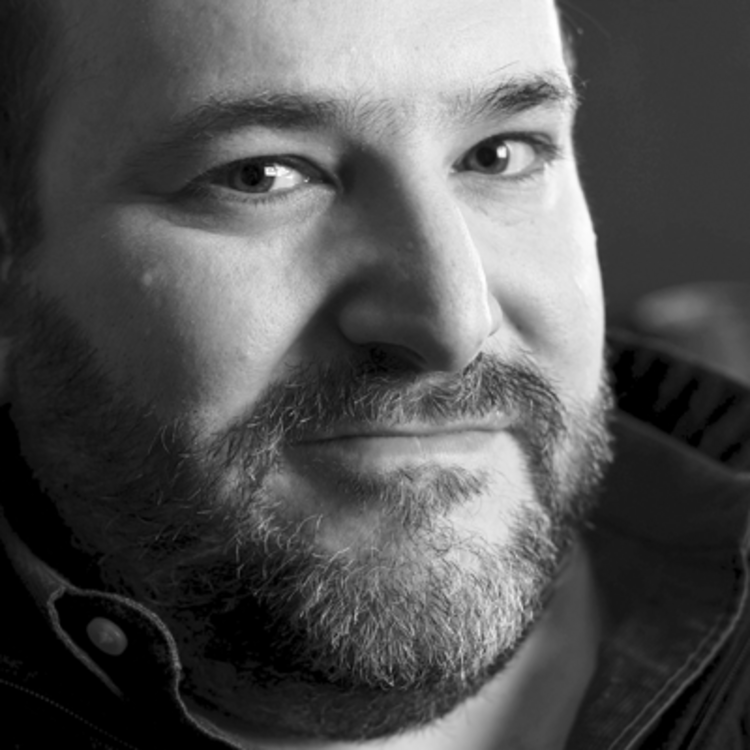Techne
Skunk Works
We often consider technology an imposition on both our craft and our business: social media putting pressure on everything from marketing to performance, for example, or IT budgets draining resources from “more important” work. But the etymological root of technology is techne: the Greek word for art. To paraphrase cartoonist Walt Kelly, we have met the enemy, and it is us. Every month or so, this column will investigate the ways in which technology can inspire us, transform us, and help us chart a new course in the 21st century. Thanks for—to use a radio metaphor—tuning in.
In 1943, under pressure from German advances, the United States Army Air Forces needed to build a new airplane as quickly as possible. The Lockheed Aircraft Corporation—relying on nothing more than a handshake agreement—assembled a team of diversely skilled engineers, freed them from bureaucratic constraints, and put them into complete seclusion. The newly-formed team delivered the Lockheed P-80 Shooting Star in only 143 days, start to finish… a full week ahead of schedule. (A contract with a deadline wasn’t signed until four months into the less-than-five-month design and development process.) In time, the P-80 was improved upon (and eventually replaced), but it set a new standard, launching the “jet age” of air combat and remaining in active service for three decades. It was an impressive achievement.
Lockheed’s Skunk Works, as the team called itself, was named in honor of the Al Capp comic strip L’il Abner, which featured a fictional factory of sorts, hidden in the backwoods of Kentucky, at which “Big Barnsmell” used a still to create “skonk oil,” a noxious potion that served some never-revealed purpose. The Al Capp version of a “skonk works” couldn’t have been more different from Lockheed’s on the surface, but they were suited to the same purpose: what we now call, in modern parlance, R&D, or research and development.
I’ve been wondering lately where in the American theater our own R&D efforts might be found… if indeed they actually exist. Some have suggested that the university system might be the right place to find it, but I’m not convinced. While I believe academic rigor is important for experimentation, especially when it comes to assessing results, the best R&D requires professionals without any other responsibilities other than innovation: with nothing but big ideas and audacious goals to live up to. Getting grades in by the end of the semester, sitting on committees, and tending to the needs of undergraduates would be a distraction.
If we were to follow the Lockheed model, then perhaps our skunk works ought to be located within a regional theater, the way the American Voices New Play Institute used to be situated within Arena Stage. (Though I don’t believe it ever quite functioned as a genuine R&D department.) Do any have the forethought or innovative spirit to create such an arrangement? Does one exist already of which I’m not aware? I’d like to know.
Some might actually suggest that HowlRound is the very thing I’m looking for. And yet—and I ask this with great respect for the platform on which I’ve now contributed ten or so articles—is the Theater Commons a skunk works? Some of what gets produced (notably, the New Play Map) would seem to be the result of that sort of effort, but the focus of the Commons seems to be on discussing the theater (and opening up that discussion) and on innovating institutional structures (via playwrights residencies, for example), rather than on pure research and development for the art form itself.
A real skunk works focused on art production, it seems to me, might include—for example—a neurologist using fMRI scans to study how stories affect the human brain, a playwright developing scripts with enhanced content intended to be delivered via Google Glass, a civic practice expert designing new ways to engage a unique audience segment via participatory theater, and a lighting designer using new tools to filter fragmentary spectra of natural light, just to dream up a few possibilities. A dozen or two innovative practitioners who work in small cross-disciplinary groups to make art in new ways, then share their findings with the rest of us: that’s what research and development might look like to me.
It seems to me that most of the skunk work-like effort in the American theater happens in small and mid-sized companies like dog and pony dc and Pig Iron and The Debate Society and a few dozen others besides who are stretching our art form and taking it in new directions and creating new forms for the rest of us to fill. One would have to imagine that in their independence (though certainly they have boards of directors to answer to, at least in most cases, and the normal not-for-profit theater pressures to respond to) they have the freedom to experiment and innovate… but without the support offered by a big institution, are they limited in what they might achieve? And I don’t mean budgetary support, mind you; skunk works’ budgets are notoriously thin. I mean the expectations for success and the endorsement of the effort that would be part and parcel of a big institution’s presence, leadership, and involvement. They would be invaluable.
Wherever our skunk works (singular or plural) might be located, it’s absolutely clear that our industry needs that sort of effort…if only because every industry does. If we simply repeat, again and again, what we already know how to do, we might as well become obsolescent like cuneiform or letterpress printing, to name two other communications technologies that have long since faded from use. So who is going to step up and say, “We will make this happen, for the good of us all”—who has the courage, foresight, and willingness to do that? Because we’re under pressure—not like the United States Army during World War II, mind you, but pressure nonetheless, from myriad competing art and entertainment options—and we need help.








Comments
The article is just the start of the conversation—we want to know what you think about this subject, too! HowlRound is a space for knowledge-sharing, and we welcome spirited, thoughtful, and on-topic dialogue. Find our full comments policy here
I think this essay sets a new Howlround record for asinine-ness. (I'm too upset right now to think of a real word, sorry.)
Pay for MRI and neurologist time to study the effect of story on the brain when few actors, writers, and other theater people are paid enough to live on? For crying out loud! What the heck is wrong with you?!
Instead of constantly hoping for some magical Deus ex Machina to save theater, instead implement common-sense procedures that will gradually cause better and better plays to be produced, rather than (as we have had in recent years) customs that cause worse and worse plays to be produced.
Most importantly, adopting a blind submission policy (that is, when deciding what plays to produce the decision makers have no idea who wrote the play).
We have a perfect example of this today -- the reviews of "The Qualms" have just come out and they all agree that the writing is pretty bad. No surprise, as the reason the play was produced was not because of the quality but because the playright is (by theater standards) famous.
I suspect this half-arsed play (like others before it) will cause many people to stop going to theater (despite, as the reviews said, the actors doing their best with the material).
And all the MRIs in the world won't change their mind.
Your example is of a team under tremendous pressure--external, sure, but also internal. Imagine how you would feel as a member of that team, with your country at war and outgunned and YOU are a major player. I can only imagine it was a Very Focused Group. Which is sort of the polar opposite of "skunk work" (skunk like? skunkish?) I've been a part of in the theater (without ever calling it that). The focus is so much on process, process, process. Which is valuable. But at the end of the day, I want a production! I want opening night! I want people to come and see it. I want a PRODUCT. University is a great place for R&D because although, yeah, you have to deal with pesky undergrads (like me, at the time), you can indeed mess around in process process process year after year after year WITHOUT producing shows--or at least, not professional shows. But out in the field, there is no way to do that. No practical, fundable, day at time way to separate the need to actually produce something and the need to experiment. And I say GOOD. Good! Make something and invite me! Create something that amazes people. Get it out there and get it up and stand behind it. Because that pressure forces solutions. It can be a miserable experience, too. It can fail. It can put you out of business. It's a major risk. But so is doing the same old bland thing or playing it safe by never getting out of process into product. That's a slow road to going out of business, but it's the same road in truth. I guess I'm saying that every single producing theater company out there or about to be out there is potentially a skunk work, if they choose to be. Which is pretty damn exciting to me.
I love this response and share your perspective wholeheartedly.
Under pressure is how diamonds are made.
To what extent are Fringe Festivals serving this purpose (in a limited way)? One question from the Lockheed example is how they chose the participants: who was in the group probably affected the results as much as the institutional support and isolation.
That's an excellent question and an excellent point.
I believe Fringe Festivals are, in part, serving this purpose, in the same way that small and mid-sized companies are.
And from what I understand, most skunk works initiatives are populated with cross-disciplinary misfits (like myself) who make connections between different spheres of practice and inquiry.
I get this. The key is entrepreneurship. Eliminate the board system. It implodes itself. We need fast and loose theatre companies that are pushing that envelope. Breaking the sound barrier. We need a retrovation, not an innovation. Innovation is coming up with something new, retrovation would be forgetting what worked and what we lost. We lost actor managed companies that held democratic views of the individuals. Theatre companies should be more like pirate ships and less like what we have now. I'm for the annialation of all board based theatre because they aren't like "skunkworks" because the skunk works take the best and the brightest, put them into isolation and then have them present. We need more of this, and less of what we have. It's what the group theatre did. You have to wonder if we're all looking for permission to volunteer our work, then we are afforded it by benevolent benefactors who then can't promise audiences, then what the hell are we doing in the current state of theatre. Theatre schools are putting our students into debt in a massive way, so when they come out, they are wage slaves while the individuals who decided to take a course in computers at the local vo-tech hold jobs that afford them to grace our stages. And I'm not just talking about the New Yorks, the Chicagos. I'm talking about every city. Whatever city you are in, there is always a chance to retrovate, but you have to unplug from stage addiction. Stage addiction drives down wages and kills innovation because there are plenty of plays written by Sam French and Dramatists playwrights. Why make something new?
I guess the one question I would ask is if when we speak of techne, we should only think in terms of the application of technology to the theater arts-- in setting up any skunkworks, I feel that techne must be at least as expansive as the ancient Greek word implies. Technology certainly can be an extension of the human artist (yes, I am alluding to McLuhan here)-- perhaps 3D printing can extend the power of a prop master just as the ubiquitousness of computer technology have extended the power of sound designers, composers, lighting designers, playwrights, and literary managers.
But as you point out, the it's the smaller to mid-sized companies who are in a better position to stretch the art form, but they're not always going to be able to afford scientific consultants on an ongoing basis.
Techne must include not just technologies, but as it did for the ancient Greeks, technique. In some cases this may mean cross fertilization that comes from learning the techniques that come from other theatrical traditions, or reclaiming historical technique. (I've long had an interest in the theatrical idioms not just of non-western cultures, but also western idioms that predate modern pseudo-naturalism, as well as contemporary trends in the non-Anglophone playwriting.)
I completely agree. I think any skunk works would have to include explorations of "human" or non-technological (in the common sense of the word) innovation, too. (Though I have to say that I find those much harder to define and even imagine.) And yes, I have some sense that a mash-up culture would be pervasive, too.